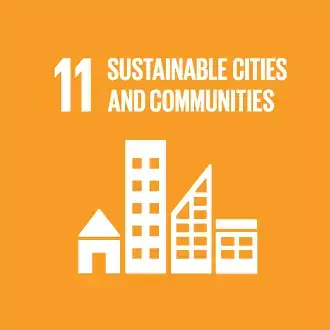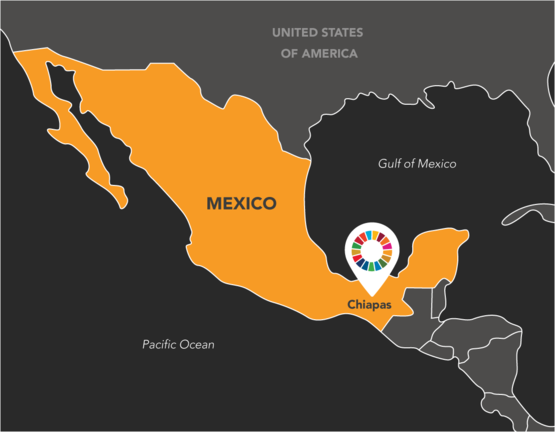
 The Role of Faith in Disaster Relief and Affordable Housing
The Role of Faith in Disaster Relief and Affordable Housing
Cities unlock human potential. They expose us to diverse ideas and beliefs that expand our perception of what’s possible. They catalyse collaborations that advance cultural and economic innovation. They represent opportunity, the dream of a better life, but cities also create new problems all their own.
In 2008 the number of people living in urban areas eclipsed the number in rural environments for the first time in history. By 2050 an estimated two-thirds of the global population -- billions more people -- will live in cities. This rapid urbanisation is overcrowding slums and informal settlements, which are already home to more than a billion people worldwide, and straining city services and infrastructure. Most slum dwellers work in the informal sector and lack adequate housing, running water, sanitation, waste management systems, public transport, and healthcare facilities. These poor conditions have made them particularly vulnerable to COVID-19’s devastating effects.
Overcrowding and congestion also create air pollution, which causes more than four million premature deaths each year, and urban sprawl, which threatens local environments. Open public spaces such as parks and beaches are vital for our physical and mental health but represent only a small fraction of most cities’ allocated land. The open spaces that do exist are often difficult to reach by foot and even by public transport, which only half of urban dwellers can conveniently access.
Urbanisation clearly has shortcomings, but there’s reason for hope. If we design and implement coordinated development policies before it’s too late, we can still create sustainable change that benefits urban majorities and all living creatures alike.
Goal 11 aims to make cities and human settlements inclusive, safe, resilient, and sustainable. To succeed, UN bodies and partners are working with local communities to ensure universal access to adequate and affordable housing, transport, and other basic services. This means upgrading slums using resource-efficient and locally sourced materials, expanding public transport, and improving waste management and air quality. Goal 11 also aims to safeguard cultural and natural heritage, increase access to green and public spaces, and reduce the negative effects of disasters. Delivering these targets requires democratic input to ensure that local solutions meet communities’ needs.
Religious institutions and faith-based organizations understand that adequate shelter is a basic human need and a prerequisite for enjoying other rights. As such, they have long provided safe housing solutions for vulnerable communities and led disaster relief efforts around the world.
The International Red Cross and Red Crescent Movement is a global humanitarian network that helps vulnerable people facing disaster meet their needs and improve their lives. Movement members bring relief supplies, medical services, shelter, and comfort to families traumatised by crises and conflicts. They also empower at-risk communities with lifesaving skills and help them create emergency plans to stay safe.
The Buddhist Compassion Relief Tzu Chi Foundation works to mitigate disasters wherever they strike. Its volunteers rebuild homes, schools, hospitals, and houses of worship, providing critical shelters where families and communities can sleep, learn, heal, and pray. Tzu Chi encourages recycling to improve the sustainability of waste management systems and operates thousands of stations that transform plastic bottles into blankets, clothes, and medical gowns that are used in the foundation’s disaster relief efforts.
DanChurchAid helps millions of people lead dignified lives. The Danish humanitarian organization provides emergency relief in disaster-stricken areas and long-term development assistance in poor regions to help communities manage risks and adapt to the effects of climate change. They work closely with local partners to ensure that communities actively participate in building their own resilience. When the Beirut explosion in August left 300,000 people homeless, DanChurchAid stepped in to provide shelter, food, hygiene kits, psychosocial aid, and money to cover basic needs.
DanChurchAid is a member of the ACT Alliance, a global coalition of faith-based organizations and churches that works in 140 countries to combat poverty, support survivors of disasters and conflicts, help people adapt to climate change, and safeguard human rights. ACT Alliance members including the Lutheran World Federation helped rebuild hundreds of homes in Nepal after earthquakes flattened entire villages in 2015. Another ACT Alliance member, the Church’s Auxiliary for Social Action (CASA), provides shelter, food, and safe drinking water to flood victims in India.
Muslim Aid responds to natural disasters and crises in more than 70 countries, building safe homes for victims, vulnerable widows, and orphans. These homes contain resource-efficient and locally sourced materials that adapt well to the surrounding environment. In many cases villagers build the foundations of their homes and Muslim Aid completes the rest of the construction, giving local communities agency and ownership.
Access to safe and affordable housing is necessary for families and communities to flourish. Habitat for Humanity International works in 70 countries to provide millions of people in need a decent place to live. These efforts have made it the largest not-for-profit builder in the world. Habitat prioritises energy efficiency and sustainability in its work, resulting in green homes that incorporate innovative approaches to ventilation, natural light, water, and sanitation.
The vast majority of faith-based organizations that provide disaster relief services and work to build sustainable cities and human settlements vow to help everyone in need, regardless of faith affiliation or background. They also collaborate interreligiously and with secular development agencies to best serve humanity. This inclusive and cross-sector approach is vital to achieving Goal 11 and ensuring that everyone can enjoy safe and sustainable living conditions.